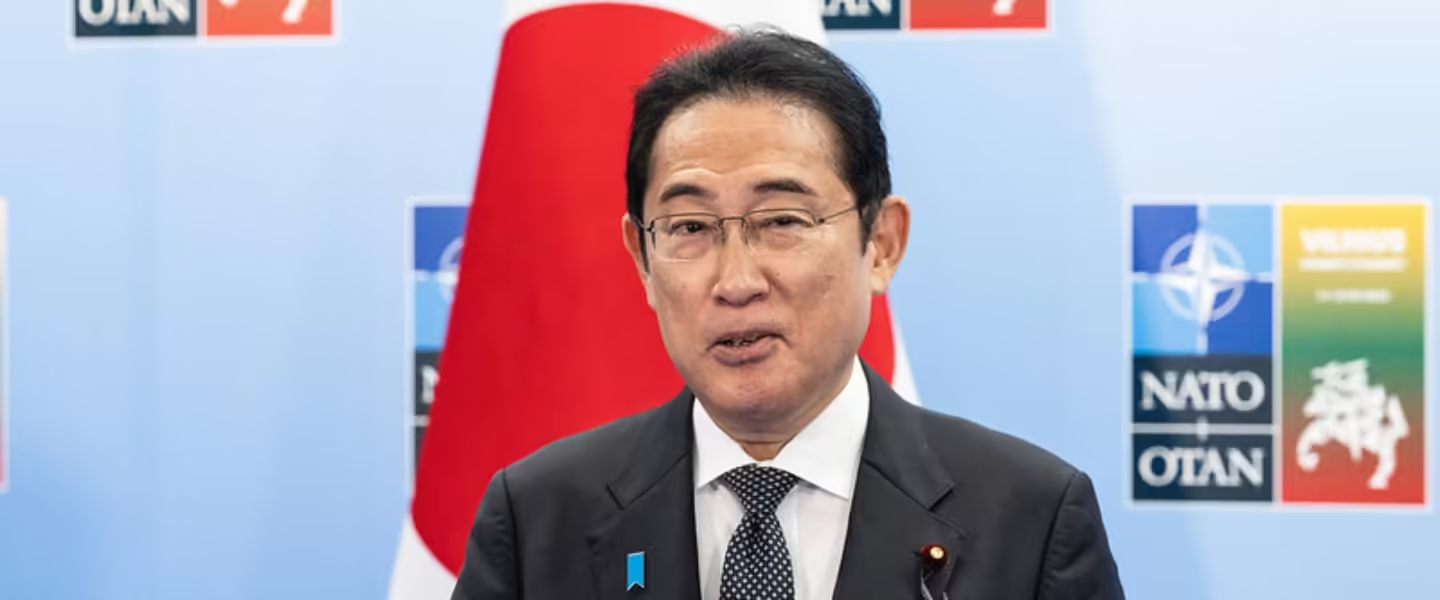In what Donald Trump and his Republicans would foolishly call a "coup," Japan's Prime Minister Fumio Kishida decided to step aside to make way for a new leader who can bring change to his party.
|
Listen To This Story
|
Japan’s Prime Minister Fumio Kishida, whose popularity has plummeted in recent months, announced Wednesday that he would not seek reelection. Kishida said he believes that his Liberal Democratic Party (LDP) needs a new start. While the party has been in power almost exclusively for the past seven decades, there have been some doubts over whether it could win next year’s elections with Kishida at the helm.
Therefore, his decision is a sensible (and perhaps necessary) political move that likely helps his party and spares him potential embarrassment.
And that’s how it was viewed across the globe and among Japan experts.
What remains to be seen is whether Republicans will call it a “coup.” After all, that’s the label they are trying to slap on US President Joe Biden’s announcement from last month that he would step aside and let another Democrat take on Donald Trump in this fall’s election.
There are plenty of similarities between the two leaders and their decisions.
Both Kishida and Biden had low approval ratings, and both were expected to underperform in upcoming elections.
And both realized that they would be a drag on their parties instead of a boost.
It’s hard to argue with that in either case.
Of course, there are some differences. For example, Democrats already held a coronation primary from which Biden emerged victorious. Ultimately, however, the presidential nominee is chosen by the party at a convention.
This is also the case in Japan. Next month, LDP members and officials will choose their new leader, who will also become prime minister until the next election.
The head of the party will be chosen by its dues-paying members and elected officials, with each getting 50 percent of the vote.
That means that only a fraction of Japan’s citizens will have a say in who will lead the country (until the next election).
In other words, it is a process that is less democratic than the one in the United States… and it still does not make this a coup in any way, shape, or form.
If anything, Kishida’s decision highlights how ridiculous it is for Republicans to refer to Biden’s announcement as such.
It is perfectly normal for someone, like Japan’s prime minister, whose approval ratings had dipped below 20 percent, to save face and step aside so that a different leader can rejuvenate his party and give it a new direction.
Maybe Kishida looked toward the example of Biden and the Democratic Party. After the US president announced that he would not seek reelection, a wave of enthusiasm has changed the entire dynamics of the presidential race.
While Biden was expected to lose handily, his successor, Vice President Kamala Harris, has quickly turned things around and is now running neck-on-neck with Trump.
It stands to reason that the LDP hopes for a similar effect in Japan, where nobody will call Kishida’s decision a “coup.”




